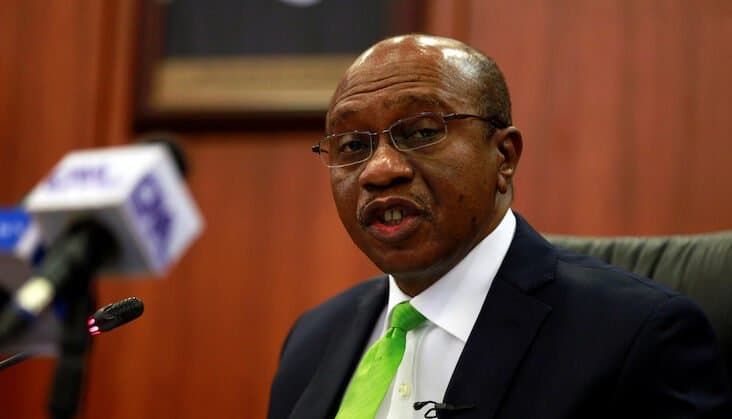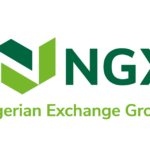The value of the Naira is fast eroding against most currencies of the world, especially United States dollars, British pounds and the Chinese renminbi as it closed yesterday at N710 to a dollar, heightening fears of investors and further compounding uncertainties for the coming days.
On Wednesday, the Senate resolved to summon the Governor of the Central Bank of Nigeria (CBN), Mr. Godwin Emefiele, over the rapid depreciation of the value of the naira.
- NIGERIA DAILY: Four ”Charges” That Determined Hanifa’s Killers Death Sentence
- ‘Nigeria loses N15trn to climate change impacts’
While the Naira has been relatively stable at the Investors and Exporters window, which is the official market for buying and selling foreign currencies, the reality of the black market, where most average Nigerians, including small and medium-scale enterprises, fulfill their demand for foreign currency, showed a worsening negative trend.
The currency trading at N710/USD on Tuesday showed an 11% shedding off against the United States dollars, compared to a week ago when the Naira was exchanged for N630/USD on the streets of Lagos, Abuja, Kano, Port Harcourt and many major cities in Nigeria.
According to the CEO of the Centre for the Promotion of Private Enterprise (CPPE), Dr Muda Yusuf, the biggest crisis faced by investors in the Nigerian economy today is the foreign exchange crisis.
According to him, the crisis has three major dimensions including the unprecedented sharp currency depreciation; the liquidity crisis in the foreign exchange market, which manifests in the acute shortage of foreign exchange in the official window; and thirdly, the volatility of the exchange rate, which creates considerable uncertainty and unpredictability for investors.
Each of the dimensions of the crisis, he said, has a diverse impact on the economy.
The unprecedented currency depreciation has implications for investors in the economy such as high cost of production because of the high import dependence of our manufacturing sector for imported raw materials; high operating costs across businesses in practically all sectors of the economy; low sales and turnover because of the increase in price and effect on demand; erosion of profit margins because not all the additional cost can be passed on consumers; increases business continuity risk for some segments of manufacturing and slumping investors’ confidence.
The liquidity challenge in the forex market however poses numerous challenges to investors as forex liquidity measures the degree of availability of forex to investors in the economy, as and when needed. This, according to the economist, has been a major challenge to investors in the economy as it makes planning difficult because of the uncertainty while profits, income or dividend repatriation by foreign investors has become difficult, creating huge backlogs.
Also, it compels investors to patronise the parallel market at a more prohibitive exchange rate while patronage of the parallel market creates compliance and regulatory issues for investors.
Dr Yusuf further pointed out that the exchange rate volatility has also taken its toll on investors as it worsens uncertainty for investors including SMEs, undermines investors’ confidence, makes planning difficult and heightens investment risk.
A major step towards resolving the crisis, he said, is for the CBN to adopt a flexible exchange rate policy regime. “It should be clarified that this is not a call for further devaluation. Rather it is a pricing mechanism that reflects the demand and supply fundamentals in the foreign exchange market, which allows for rate adjustments as and when necessary. It is a model that is predictable, transparent and sustainable. It is a policy regime that would reduce uncertainty and inspire the confidence of investors.
“It is a policy framework that would minimize discretion and arbitrage in the foreign exchange allocation mechanism.”
He called for the adoption of a flexible exchange rate regime that would improve liquidity in the forex market, reduce uncertainty and enhance investors’ confidence; deepen the autonomous foreign exchange market through the liberalisation of inflows from export proceeds, Diaspora remittances, multinational companies, donor agencies, diplomatic missions, among others.
‘Reduced supply, high demand responsible’
Some market analysts, who sought for anonymity, say the situation is beyond political spending, and rather a reflection of the surge in demand for foreign currency at a time when the CBN has drastically reduced supply to the market and inflows of foreign currency from autonomous sources have dried up.
As one analyst noted, “It’s summer period and many Nigerians who have not travelled abroad in the past 2 years due to the pandemic want to express their tourist appetite but more importantly, a lot more people are seeking foreign currencies to pay for foreign education as schools roll out admission letters ahead of September resumption”.
He said this has become even more alarming with the relatively high cost of private universities and insecurity in the country, not to say the recurring months of the strike action by the Academic Staff Union of Universities. “There is also the unending demand for foreign currency from Nigerians migrating abroad for various reasons, the principal course being macro and security uncertainties across most cities,” the analyst said.
According to the analysts, the scarcity of foreign currency has scared away many foreign portfolio investors, with their participation in both equities and the fixed-income market reduced to new historical low levels, especially as there are allegations that the CBN missed payments for forwarding contracts on some days in the past two months. This is a major concern that has cast doubt on the true ability of the CBN to use the USD39.27billion external reserves to meet the foreign currency obligations and demand.
The analysts also blamed this on developments around the remittances from the Diaspora, which have historically been one of the major autonomous sources of foreign currency inflow. Unfortunately, they note, this has been undermined by the economic situation of many of the Nigerians in the Diaspora, in addition to the rising informal remittance model of many others who now favour using Fintechs and peer-to-peer platforms to achieve their remittance objectives.
Similarly, President of Lagos Chamber of Commerce and Industry (LCCI), Asiwaju Michael Olawale-Cole, maintained that monetary authorities need to liberalise the forex market by unifying the multiple FX rates and ensuring FX rates are market-driven.
This, he said, is critical in the process of enhancing stability, liquidity and transparency in the forex market.
According to him, the unification is expected to improve the currency management framework given that the multiple exchange rate systems have continued to create uncertainties and sources of arbitrage.
Local content, economic diversification the way out – experts
A lecturer and former Commissioner of Finance, Imo State, Prof. Joe Uwaleke, told our correspondent that “Certainly, the impact of rising exchange rate will be negatively felt on the prices of commodities” across the country.
He explained that to mitigate the impact on businesses, “Firms that rely on the import of raw materials can manage the risk arising from exchange rate volatility by hedging in the futures market.
“For example, if a firm needs raw materials in say 3 months’ time, it can lock in the exchange rate now in a futures contract. Such firms can also explore local sourcing of raw materials including through backward integration” he explained.
He further noted that the current exchange rate volatility is chiefly pronounced in the parallel or black market.
“Given that the regime of CBN supply of forex to BDCs is over and the fact that, as part of the country’s underground economy, the parallel market cannot be completely eradicated, the concern of the CBN should be how to narrow as much as possible the wide gap between the official rate and the parallel market rate in order not to encourage round tripping.
“This the CBN can do by ensuring that the official market does not have multiple exchange rates as well as ensuring the liquidity of the forex market through increased supply against the backdrop of the country’s healthy external reserves in excess of $39 billion and sufficient to finance many months of imports,” he said.
According to him, the long run solution to checking the adverse effects of the parallel market on the economy is for the country to diversify the export base and create multiple sources of forex earnings in order to boost supply.
We can’t bear burden of forex adjustments alone – CBN
A senior official of the CBN told Daily Trust that the apex bank alone cannot bear all the burden of the expected adjustments needed to manage the free fall of the naira.
The source said: “There are four sources through which Nigeria earns foreign exchange: Proceeds from oil exports, proceeds from non-oil exports, Diaspora remittances, and Foreign Direct/Portfolio Investments (capital flows).
“The past six years have been characterised by two recessions, triggered by a slowdown in the global economy as well as the effects of COVID-19. These were also further accentuated by sharp declines in the prices of crude oil, the major source of Nigeria’s foreign exchange.
“Considering Nigeria’s heavy dependence on oil exports for foreign exchange earnings and government revenue, the impact of the oil market crash severely affected the government’s naira revenue and other macroeconomic aggregates including economic growth. Hence, the rate of exchange between the naira and other currencies has widened over the past few years,” he said.
The source noted that the CBN issues legal tender in Nigeria (naira) and does not print foreign exchange adding that the pressure on the naira has both local and global perspectives.
The source further disclosed that there is unbaiting demand for foreign exchange for both goods and services, thereby creating a demand challenge.
“Domestically, there has been zero dollar remittance to the country’s Foreign Reserve by the Nigerian National Petroleum Corporation (NNPC). The current exchange rate of the naira, like other major currencies, is not driven by cryptocurrencies, given the volatility in the cryptocurrency space, which lost over 2 trillion in the past two years in face of high inflation.
“High inflation in other climes and the hike in interest rates have heightened pressures on Nigeria’s exchange rate. This has triggered capital flow reversals from Emerging Markets and Developing Economies (EMDEs) to more advanced economies”.
The source also noted that the United States Dollar is gaining against all major currencies of the world and the imbroglio in Nigeria’s tertiary education sector has triggered an exodus of students from Nigeria schools, with its attendant payment of fees in foreign exchange.
The source said: “Summer travels by Nigerians have also had an impact on the demand side of the foreign exchange market.
“Nigeria is not producing, hence the propensity to import in directly affecting the value of the naira”
The source explained that the CBN had attempted to address the challenge through policies such as the RT200 FX Programme; 100 for 100 Policy on Production and Productivity; Naira4Dollar Scheme; Anchor Borrowers’ Programme (ABP); Export Development Facility (EDF); and The Non-Oil Export Stimulation Facility (NESF).
By Sunday M. Ogwu, Chris Agabi (Abuja) Vincent Nwanma, Christiana T. Alabi (Lagos)

 Join Daily Trust WhatsApp Community For Quick Access To News and Happenings Around You.
Join Daily Trust WhatsApp Community For Quick Access To News and Happenings Around You.


